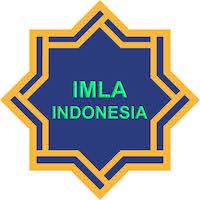Effectiveness of Using The Empty Outline Strategy With Cooperative Learning in Teaching Reading Skills
DOI:
https://doi.org/10.18592/jams.v10i2.11376Abstract
To avoid becoming monotonous in the classroom, learning requires creativity and innovation. More and more new ideas are available for projects that support educational goals. For example, the education model, method, strategy and means. Therefore, the researcher is interested in studying the effectiveness of using the blank chart strategy in cooperative education in teaching reading skills to seventh grade students at the Islamic Brotherhood Middle School in Banjarmasin. The aim of this research was to determine the effectiveness of the blank chart strategy in cooperative learning in enhancing students' reading comprehension. Experimental and quantitative approaches are used in this research. The population in this research is seventh grade students and its sample is taken from the community collector. The design of this research used an experimental group and a control group. The experimental group was treated using the blank chart strategy in cooperative education, and the control group did not use it. The results showed that there was a difference between the pre- and post-test scores for each category, but there was no significant difference in the comparison between the experimental category and the control category. Based on the results of u-test calculation with IBM SPSS v.22 application, the Sig (2-tailed) value of 0.174 is greater than 0.05, then Ha is rejected and Ho is accepted. Therefore, the results of using the blank chart strategy in cooperative learning in teaching students' reading skills are ineffective.References
Alifah, Fitriani Nur. “Pengembangan Strategi Pembelajaran Afektif.” Tadrib 5, no. 1 (July 1, 2019): 68–86.
Arifin, Zaenal. “Metodologi Penelitian Pendidikan.” Jurnal Al-Hikmah 1, no. 1 (2020). https://alhikmah.stit-alhikmahwk.ac.id/index.php/awk/article/view/16.
Aziza, Lady Farah, and Ariadi Muliansyah. “Keterampilan Berbahasa Arab Dengan Pendekatan Komprehensif.” El-Tsaqafah : Jurnal Jurusan PBA 19, no. 1 (June 30, 2020): 56–71.
Budiana, Irwan, Totok Haryanto, Abdul Khakim, Titin Nurhidayati, Tiarma Intan Marpaung, Asima Rohana Sinaga, Muhammad Nashir, and Roudlotun Nurul Laili. Strategi Pembelajaran. Malang: CV Literasi Nusantara Abadi, 2022.
Duli, Nikolaus. Metodologi Penelitian Kuantitatif: Beberapa Konsep Dasar Untuk Penulisan Skripsi & Analisis Data Dengan SPSS. Deepublish, 2019.
Emzir. Metodologi Penelitian Pendidikan Kuantitatif & Kualitatif. Jakarta: RajaGrafindo Persada, 2008.
Hasanah, Zuriatun, and Ahmad Shofiyul Himami. “Model Pembelajaran Kooperatif Dalam Menumbuhkan Keaktifan Belajar Siswa.” Irsyaduna: Jurnal Studi Kemahasiswaaan 1, no. 1 (2021): 1–13.
Hasriadi. Strategi Pembelajaran. Bantul: Penerbit Mata Kata Inspirasi, 2022.
Hermawan, Acep. Metodologi Pembelajaran Bahasa Arab. Bandung: PT Remaja Rosdakarya, 2014.
Hidayat, Nandang Sarip. “Problematika Pembelajaran Bahasa Arab.” An-Nida’ 37, no. 1 (2012): 82–88.
Paramita, Ratna Wijayanti Daniar, Noviansyah Rizal, and Riza Bahtiar Sulistyan. Metode Penelitian Kuantitatif Edisi 3. Lumajang: Widyagama Press, 202AD.
Priyanto, Duwi. Belajar Alat Analisis Data Dan Cara Pengolahannya Dengan SPSS. Yogyakarta: Gava Media, 2016.
Rahman, Rifqi Aulia. “Kemahiran Qira’ah Dan Konsiderasi Strategi Pembelajaran.” Lisanan Arabiya: Jurnal Pendidikan Bahasa Arab 2, no. 1 (2018): 97–120.
Thoha, Mohammad. “Pembelajaran Bahasa Arab Dengan Pendekatan Manajemen Berbasis Sekolah.” OKARA: Jurnal Bahasa dan Sastra 6, no. 1 (May 5, 2012). http://ejournal.iainmadura.ac.id/index.php/okara/article/view/420.
Zakiatunnisa, Dinda Alfian Sukma, and Masiva Nada Faidah. “Problematika Pembelajaran Bahasa Arab Dan Solusinya Bagi Non-Arab.” Prosiding Semnasbama IV UM Jilid 2 (2020).
Downloads
Published
Issue
Section
License
Copyright (c) 2023 Nur Adzkia Kamilah

This work is licensed under a Creative Commons Attribution 4.0 International License.
Authors who publish with this journal agree to the following terms:
- Authors retain copyright and grant the journal right of first publication with the work simultaneously licensed under a Creative Commons Attribution License that allows others to share the work with an acknowledgement of the work's authorship and initial publication in this journal.
- Authors are able to enter into separate, additional contractual arrangements for the non-exclusive distribution of the journal's published version of the work (e.g., post it to an institutional repository or publish it in a book), with an acknowledgement of its initial publication in this journal.
- Authors are permitted and encouraged to post their work online (e.g., in institutional repositories or on their website) after the submission process, as it can lead to productive exchanges, as well as earlier and greater citation of published work.






